Grill Like a Korean BBQ Pro: The Best Sauces to Elevate Your Meat Game
Table of Contents
- Introduction: Why Korean Barbecue Sauce is a Game-Changer
- Top 10 Korean Barbecue Sauces You Need to Try Right Now
- Korean BBQ Sauce Styles: Sweet, Spicy, or Smoky?
- Pro Tips for Using Korean Barbecue Sauce Like a Chef
- DIY at Home: How to Whip Up Your Own Korean BBQ Sauce
- Frequently Asked Questions About Korean BBQ Sauce
- Conclusion: Flame Up Your Flavors with the Best Korean BBQ Sauces
Introduction: Why Korean Barbecue Sauce is a Game-Changer
Korean barbecue (KBBQ) isn’t just about grilling meat on a tabletop grill — it’s a full sensory experience. From the sizzle of marinated beef hitting the hot plate to the intoxicating aroma of charred garlic and sesame oil, KBBQ brings people together over bold flavors and unforgettable moments.
At the heart of this culinary tradition? The sauce.
Whether you’re dipping thinly sliced bulgogi into a rich, sweet glaze or basting thick cuts of pork belly with a gochujang-laced marinade, the right Korean barbecue sauce can transform your backyard grilling from meh to magnificent.
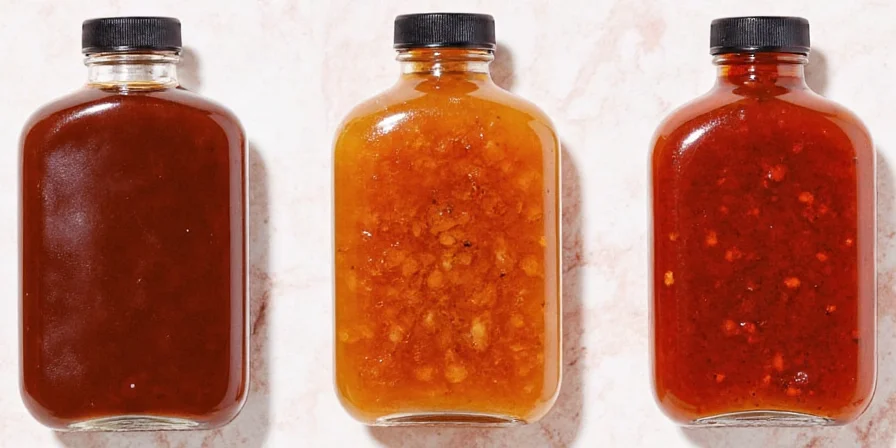
Top 10 Korean Barbecue Sauces You Need to Try Right Now
We’ve rounded up the crème de la crème of Korean barbecue sauces that are guaranteed to make your taste buds do the happy dance. From store-bought gems to homemade heroes, here are our top picks:
- Gochujang-based Glaze – Rich, umami-packed, and slightly spicy.
- Sweet Soy Marinade – Perfect for bulgogi lovers who crave a balance of sugar and salt.
- Cheongyang Pepper Dipping Sauce – For those who like their heat blazing.
- Pear-infused BBQ Sauce – Adds a natural sweetness and tenderizes the meat.
- Miso-Korean Fusion Sauce – A savory twist that adds depth to grilled pork.
- Honey Sesame Drizzle – Ideal for finishing off grilled chicken or shrimp.
- Spicy Garlic Paste (Gochu-Tube Style) – Not a sauce per se, but a must-have flavor booster.
- Perilla Leaf Oil Blend – For a refreshing, herby kick.
- Tteokbokki-inspired Basting Sauce – Thick, spicy, and oh-so-addictive.
- Doenjang Fermented Gravy – For slow-cooked richness and depth.
| Sauce Type | Main Flavor Profile | Best With | Heat Level (1–5) |
|---|---|---|---|
| Gochujang Glaze | Umami, Spicy, Slightly Sweet | Pork Belly, Chicken Wings | 3 |
| Sweet Soy Marinade | Salty, Sweet | Bulgogi, Sirloin | 1 |
| Cheongyang Pepper Sauce | Fiery Hot, Tangy | Beef Ribs, Pork Skewers | 5 |
| Pear-infused BBQ Sauce | Fruity, Mildly Sweet | Thin-cut Meats | 1 |
| Miso-Korean Fusion | Savory, Earthy | Pork Shoulder, Spare Ribs | 2 |
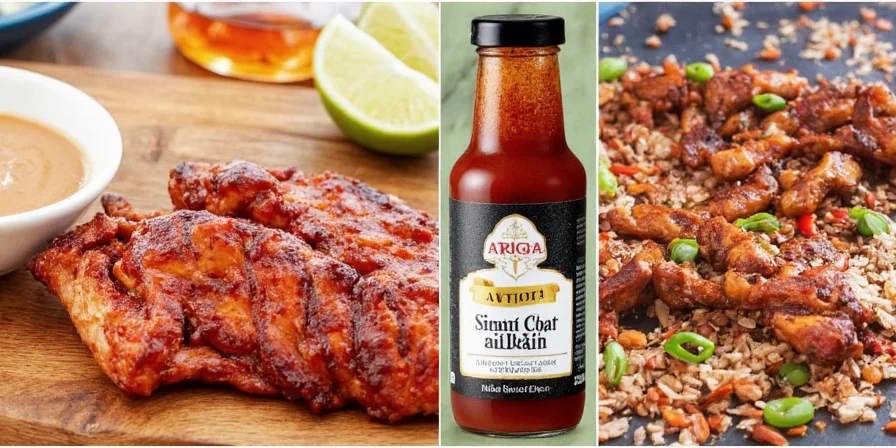
Korean BBQ Sauce Styles: Sweet, Spicy, or Smoky?
The beauty of Korean barbecue sauce lies in its versatility. Depending on the region and personal preference, there are several distinct styles:
- Jeju Island Style: Lighter, citrus-forward with hints of green onion and sesame.
- Busan Coastal Style: Often includes seafood elements like anchovy or shrimp paste.
- Seoul Classic: Balanced sweet and salty, usually soy-based with garlic and pear.
- Daegu Fire: Known for extra-spicy blends using multiple types of chili peppers.
- Gyeonggi Province Mix: Tends to be richer, sometimes incorporating rice wine or perilla leaves.
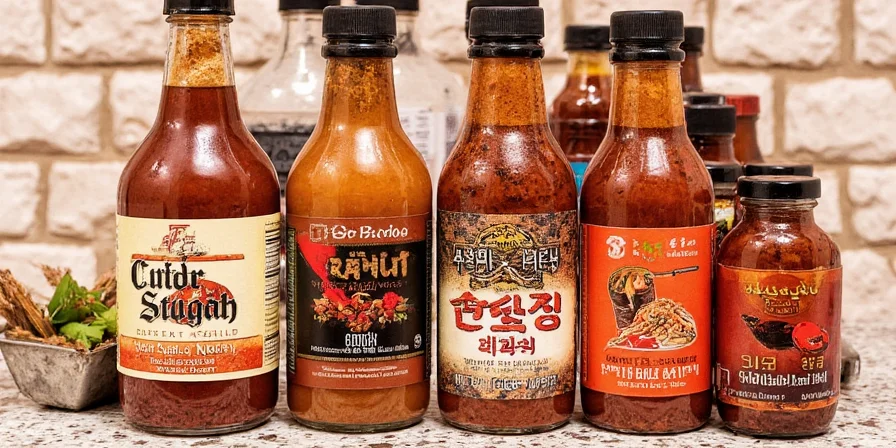
Pro Tips for Using Korean Barbecue Sauce Like a Chef
You don’t have to be a trained chef to unlock the full potential of Korean barbecue sauce. Here are some insider tips to take your grilling game to the next level:
- Brush, Don’t Drown: Use a silicone brush to apply sauce gradually while grilling. This helps avoid burning and allows layers of flavor to build up.
- Layer the Flavors: Start with a base marinade, then add additional sauce as you cook. Finish with a drizzle of something bright like sesame oil or citrus zest.
- Use It Cold Too: Some sauces work great as cold dips. Serve alongside grilled meat or use as a salad dressing!
- Add Texture: Stir in toasted sesame seeds, chopped scallions, or even crushed peanuts for added crunch.
- Pair with Pickled Things: Kimchi, pickled radish, or quick-pickled cucumbers cut through the richness of the meat and sauces beautifully.

DIY at Home: How to Whip Up Your Own Korean BBQ Sauce
If you’re feeling adventurous, making your own Korean barbecue sauce is easier than you think — and infinitely customizable! Here’s a simple recipe to get you started:
Sweet & Spicy Gochujang Bulgogi Sauce
- 3 tbsp gochujang
- 2 tbsp soy sauce
- 1 tbsp sesame oil
- 1 tbsp honey or brown sugar
- 1 tbsp grated pear or apple
- 1 clove garlic, minced
- ½ tsp freshly ground black pepper
Mix all ingredients in a bowl until smooth. Let sit for at least 30 minutes before marinating your meat. Works wonders on thin-sliced ribeye or flank steak.
Variations:
- Add 1 tsp gochugaru for more heat.
- Substitute miso paste for part of the gochujang for a deeper flavor.
- Swap out pear for kiwi to tenderize tougher cuts naturally.
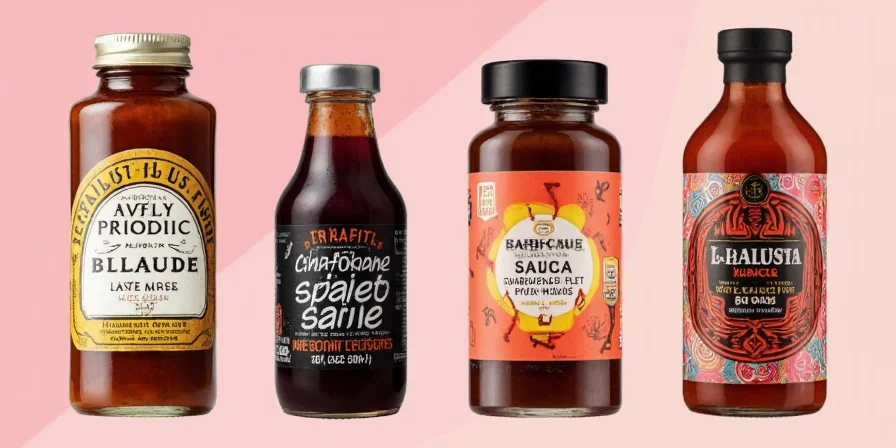
Frequently Asked Questions About Korean BBQ Sauce
Can I use regular BBQ sauce instead of Korean-style?
You *can*, but the flavor will be quite different. Korean barbecue sauce typically has a unique balance of sweet, spicy, and umami notes thanks to ingredients like gochujang, soy sauce, and fruit purees. Regular BBQ sauce tends to lean more on tomato and molasses bases.
How long does homemade Korean barbecue sauce last?
In an airtight container in the fridge, your homemade sauce should last up to 2 weeks. If you want to preserve it longer, consider freezing in small portions for future use.
What's the difference between gochujang and gochugaru?
Gochujang is a fermented red chili paste with a deep umami flavor. Gochugaru is dried red chili flakes used to add heat and texture. Both are commonly found in Korean barbecue sauces but serve different purposes.
Are there gluten-free options available?
Yes! Many traditional Korean sauces are naturally gluten-free, especially if made with tamari instead of soy sauce. Always check labels when purchasing store-bought varieties.
Can I use Korean barbecue sauce on non-meat dishes?
Absolutely! Try it on tofu skewers, roasted vegetables, or even popcorn for a delicious twist. Get creative and let your palate be your guide.
Conclusion: Flame Up Your Flavors with the Best Korean BBQ Sauces
Korean barbecue sauce is more than just a condiment — it’s the soul of a meal. Whether you’re hosting a weekend feast or enjoying a solo dinner, the right sauce can transport you straight to the bustling streets of Seoul with every bite.
From smoky and sweet to fiery and funky, there’s a Korean barbecue sauce out there for everyone. Armed with our top 10 list, flavor breakdowns, and DIY tips, you’re ready to ignite your grill with confidence and flair.
So fire up that burner, grab your tongs, and let your taste buds travel. Happy grilling!


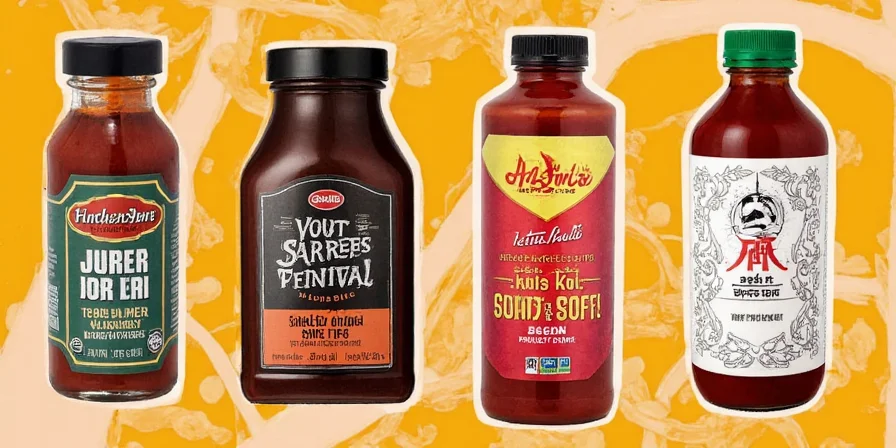









 浙公网安备
33010002000092号
浙公网安备
33010002000092号 浙B2-20120091-4
浙B2-20120091-4